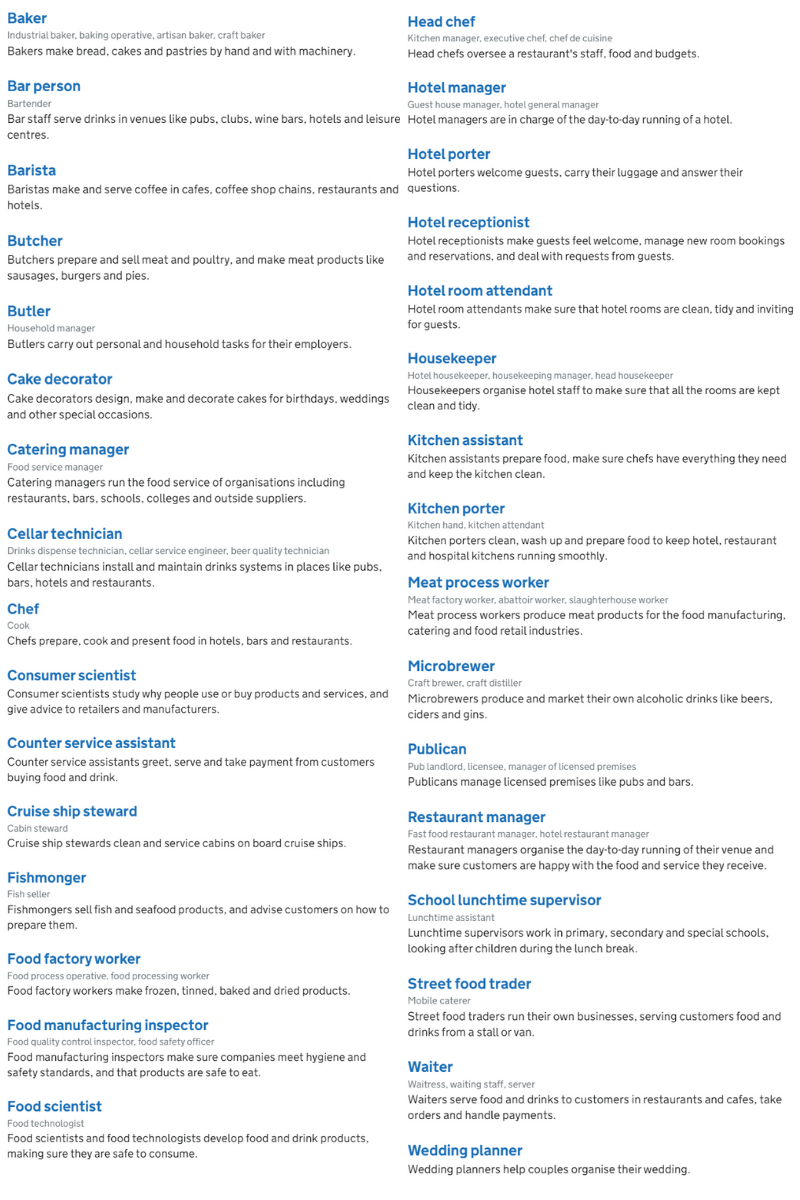
If you have good communication and teamwork skills and want to work in an industry with varied entry-level opportunities and the chance for career progression, hospitality and catering have long been an attractive proposition.
As the hospitality industry reopens following the easing of lockdown restrictions, now could be the perfect time to start a new career.
The coronavirus pandemic hit the hospitality industry harder than most.
Around one in ten workers in the UK have left positions in the last year, mostly due to COVID-19 enforced closures, although Brexit has also played a part.
Some workers have thankfully found alternative employment, while many EU nationals have left the UK altogether, choosing to stay and find work in their home countries.
But after the roughest and toughest of years, let’s look forward with some positivity.
An industry that had to downsize is now ready to scale up again to meet public demand, which means that thousands of roles in bars, restaurants, cafés and hotels are available again.
According to CGA’s Business Leaders Survey, three-quarters of hospitality business leaders plan to grow their teams in 2021. And Caterer.com says that vacancies on its website have grown by 85%. The government is also putting £2bn into a Kickstart Scheme that will fund six months of 25 hours a week work for 16-24-year-olds.
If you’re looking to get your start in the hospitality and catering industry, this year — as we slowly return to what life was like before the pandemic — could be as good a time as any to do it?
Hospitality and catering is a broad industry, with opportunities for everyone, regardless of which area you’re interested in.
The National Careers Service website lists 32 different careers covering everything from roles that get hands-on with food including bakers, butchers, chefs and fishmongers, to service roles like bar staff, baristas, waiters, counter assistants, stewards and porters, to management and inspection roles such as hotel manager, housekeeper, publican and manufacturing inspector.

The vast majority of roles, particularly in the areas of service and kitchen and manufacturing assistants are available at entry-level, with many companies offering some form of structured training that allows you to progress to a more prominent role.
For example, as a bar person, you may be able to work your way up to bar manager. Or a kitchen assistant can progress to the role of cook.
It depends on the job role, but the industry is welcoming to workers of all backgrounds.
Most entry-level positions are ‘learn on the job’ roles which means you’re able to progress while working and getting paid, so you usually won’t need a degree to get your start. What you will need though, are the following ‘soft skills’ that enable you to fit into the workplace:
If you want to start your career in a more established position within a company, gaining a relevant qualification in hospitality or catering will strengthen your application. And landing a role in the first place — standing out from the competition to get your chance to impress an employer — will most certainly be helped by being certified in a discipline that relates to that role.
We have 40 different online courses covering all aspects of hospitality and catering, from food and drink prep to customer service and management, as well as courses in food manufacturing and nutrition, that can add essential knowledge and skills to your CV.
Find an online course here.
Because the industry is so vast, there is no one-stop-shop for hospitality and catering jobs. Each company or recruiter has their preferred ways of advertising roles so it’s worth looking in all of the following places:
Social media: Companies often post job ads on their Twitter and Facebook pages. Larger companies and recruiters may also advertise roles on LinkedIn, although these tend to be more on the managerial side.
Job boards: Sites like Indeed, Monster, Totaljobs and Reed all provide the most up-to-date roles at all levels. There are also industry-specific job boards like Caterer.com, Leisure Jobs, HospitalityUnite and Hospitality Jobs UK.
Classified sites: Gumtree, Free Ads and the classified sections of local newspaper websites often feature roles in your surrounding area
Notice boards: Local jobs can still be found in shop windows and pinboards within bars, pubs and restaurants. Or you can also ask a member of staff if they know of any available jobs.
Open days: Larger companies and some recruiters host open days when recruiting for a particular role or multiple roles. These are usually promoted well in advance so it’s worth keeping an eye on social media.
When browsing through job ads looking for one that fits, look closely at the required/desired skills and attributes and make sure to include those relevant in your application. If you’ve found the ideal role but don’t quite meet the desired skill-set or experience, consider taking a course to get certified. This will demonstrate to employers that you’re knowledgeable, competent and committed to learning. All qualities that show you’re ready to hit the ground running and a great long-term asset to a company.
Find a course that fits with the role you want and start your hospitality career with us.